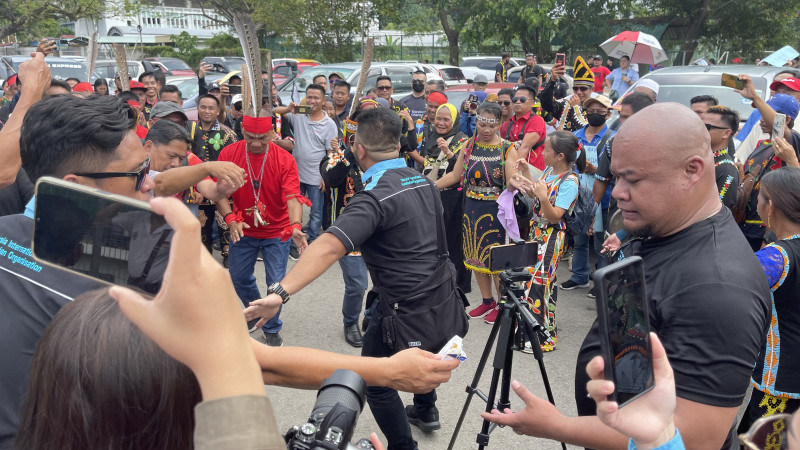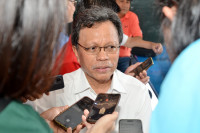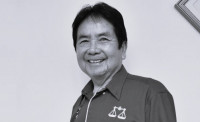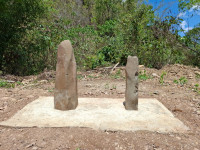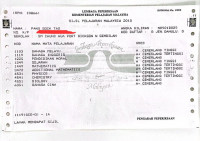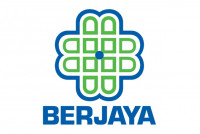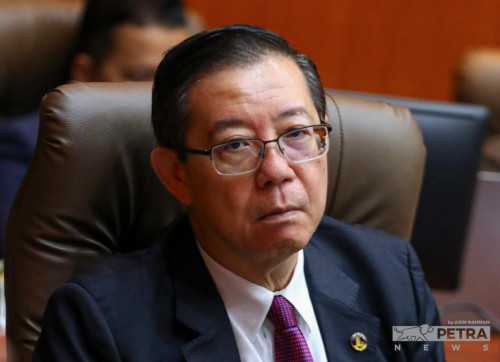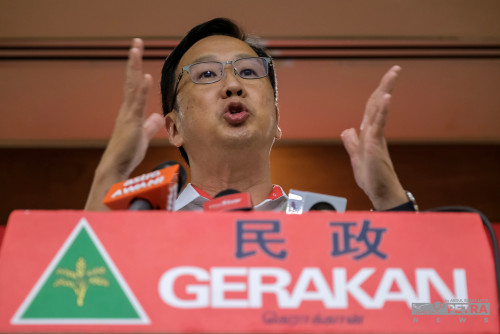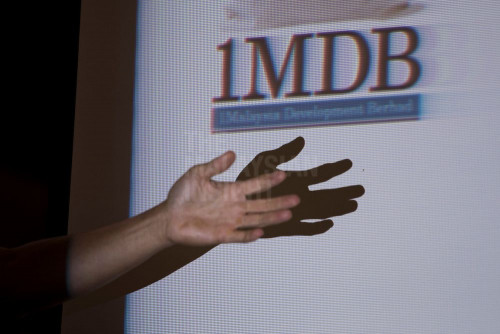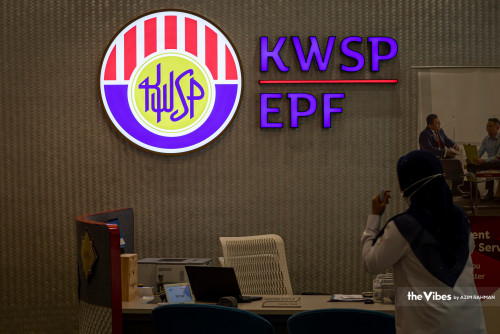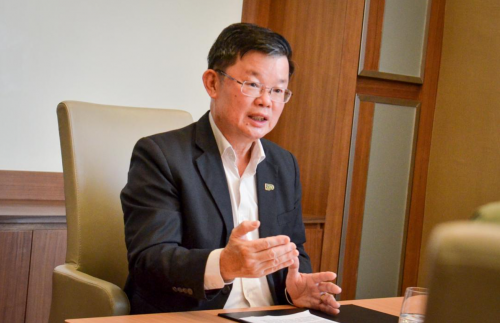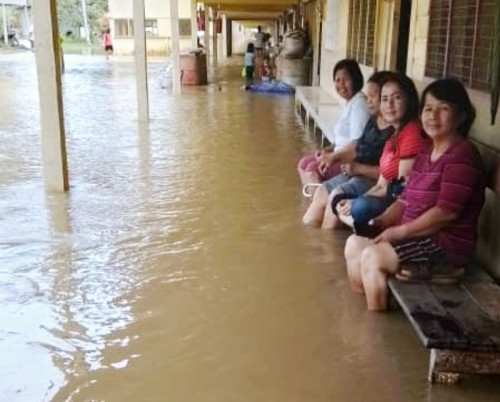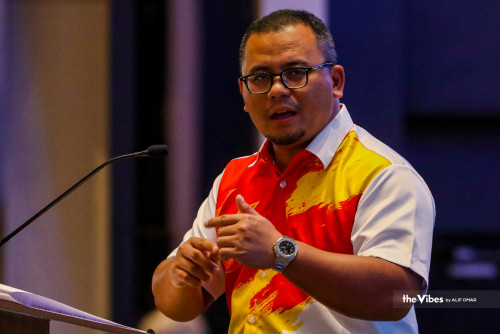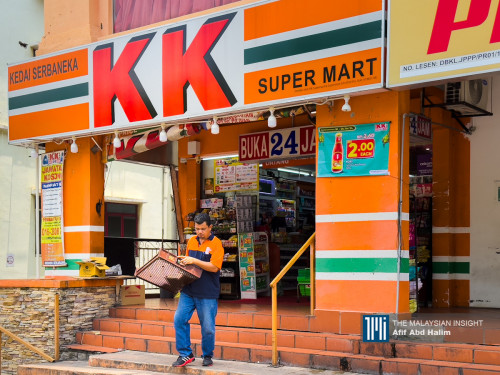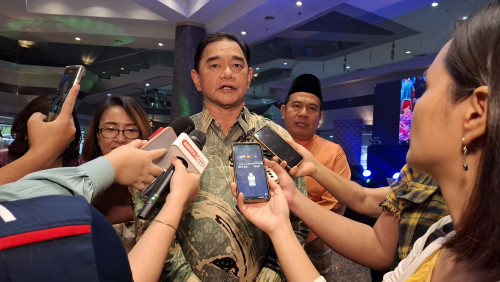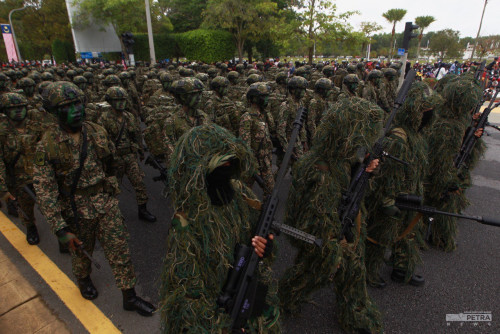KOTA KINABALU – Salina Lingutan, a member of an indigenous community residing in the remote village of Serudong near the Sabah-Kalimantan border was moved to tears as she asserted her commitment to defend her ancestral land.
The 41-year-old woman from the Murut ethnic group recounted a harrowing eviction experience, during which she claimed to have been roughed up, slapped twice, and restrained, over her family house that was built on land that lawfully given to a private palm oil company back in 2013.
“Go ahead and kill us, I told them, this is our land," she recalled saying.
Her husband, Jhonny Ungkis, resonated her defiance as he emotionally narrated how their home was set ablaze, allegedly by individuals he suspected were hired by the company involved in the eviction.
Tragically, one of their children lost his life that fateful day.
"The authorities insisted that the land belonged to the company and that we must vacate. We were deeply in despair dur to their action," Jhonny said as he wept beside his wife.
The couple claimed they felt they had lost everything that day.
The heart-wrenching story of Salina and Jhonny is indicative of the struggles faced by countless indigenous individuals in Sabah due to forced evictions, land disputes and land grabs spanning nearly half a century.
Hijacked through administrative process
Surprisingly, many of these forced evictions have been carried out legally even though the state land law, the Sabah Land Ordinance (Cap. 68), has sufficient provisions to safeguard native customary rights (NCR).
The legal framework for native customary rights in the Sabah Land Ordinance is explicit.
It stipulates that any state land cultivated or developed within three years by indigenous communities is recognised as native customary rights, as articulated under Section 15(e) and Section 65 of the state ordinance.
However, indigenous land rights activist Galus Ahtoi alleged that these rights are often infringed due to the abuse of the land application process although it may seem lawful on paper.
Ahtoi pointed out that in many cases officials failed to comply with Section 13 of the Sabah Land Ordinance.
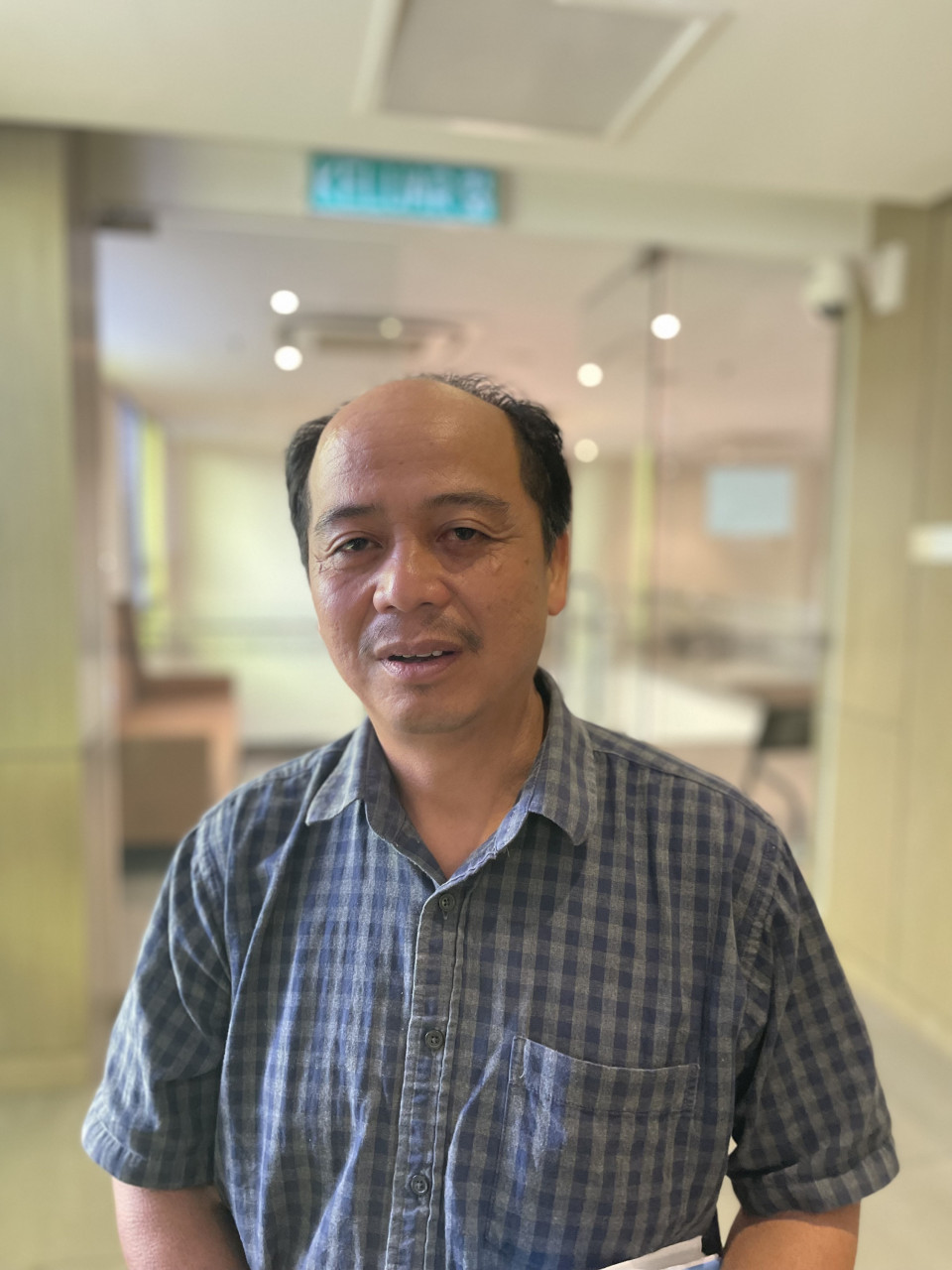
Section 13 mandates the publication of notices for unalienated land and invites claimants to submit their complaints related to native customary rights for at least 30 days.
He alleged that, at times, such notices were not published at all.
Ahtoi said upholding native customary rights claims could also be hijacked during land enquiry after the Section 13 process is completed.
He explained that land enquiry is an important step in land disputes, as the indigenous communities are required to present all the evidence of their native customary rights claim.
“If the land in question is indeed native land, the land office is required to reject the land application,” he said.
“But these inquiries could drag on for years, and decisions can become a real challenge, especially when officers are replaced or technical experts pass away while the sessions are still ongoing.”
Ahtoi also expressed concerns about the unchecked authority of the assistant collector of land revenue in deciding on land applications, especially when such loopholes in the Sabah Land Ordinance can be exploited.
A national inquiry conducted by the Human Rights Commission (Suhakam) between December 2010 and June 2012 also seemed to corroborate his views.
Of the 407 statements collected in the inquiry in Sabah, the majority of complaints pertained to administrative issues and these problems are closely followed by concerns related to plantation activities.
Govt focus on timber, plantation sectors
Jannie Lasimbang, who served as the Sabah Suhakam commissioner at the time, observed the administrative issues and the land disputes arising from the plantation activities which revealed the real priorities of the state government at the time.
She noted that the government's focus on development and investments constantly outweighs the rights and welfare of the indigenous communities.
This skewed prioritisation has resulted in land disputes, forced evictions, and significant challenges for indigenous communities.
“Unfortunately, the only recourse ended inside the courtroom. Pursuing these legal battles is an arduous process that demands substantial organisation.
“Having knowledge of the law is one thing, but understanding the intricacies of land claims and going through court proceedings is another, consuming time, money, and energy," said Lasimbang, who is now the Kapayan state assemblyman.
Originally, she said, the inclusion of the native customary rights in the state land ordinance was initiated by the former British colonialists, with the intention of ensuring that settlements are provided for all Sabah natives, which was a top priority.
But the priorities seem to have changed when Sabah underwent the timber and palm oil economic booms which spanned from the 70s until today.
Problematic communal grants
It is evident that these land disputes are likely to persist until the next economic upturn, whenever it may occur.
Lasimbang attributed the complexities in Sabah's land-related issues to communal grants introduced by the state government in 2010.
While communal titles are based on native customary rights, they often lead to land schemes that ensnare indigenous communities into unfair agreements with private companies for the development of their lands through the lucrative cash crop cultivation.
Lasimbang cited "creative accounting" as one reason for indigenous communities' disadvantaged position in these schemes, with companies reporting losses or reduced profits to justify meagre or non-existent payouts to native landowners.
"The communal title scheme was well-intentioned, but when it is converted into a land scheme with joint ventures, the community loses its say in crop choices and benefits.
“Even though the land still belongs to the villagers, they have no say as long as the joint venture remains in place," she explained.
Lasimbang argued recipients of the communal titles should have the freedom to exit these deals, pointing out that it can be exceedingly difficult.
“As it has been discovered that some communal titles include outsiders who have no connection to the land.
“When the number of outsiders outweighs the actual natives, collective decision-making on matters such as exiting failed ventures or making other land-related decisions becomes problematic,” she said.
Meanwhile, the coordinator of the Sabah chapter of the Malaysian Humanitarian Organisation (MHO), Captain Jerry Jaimeh, expressed concern that the land issues in Sabah can only get worse.
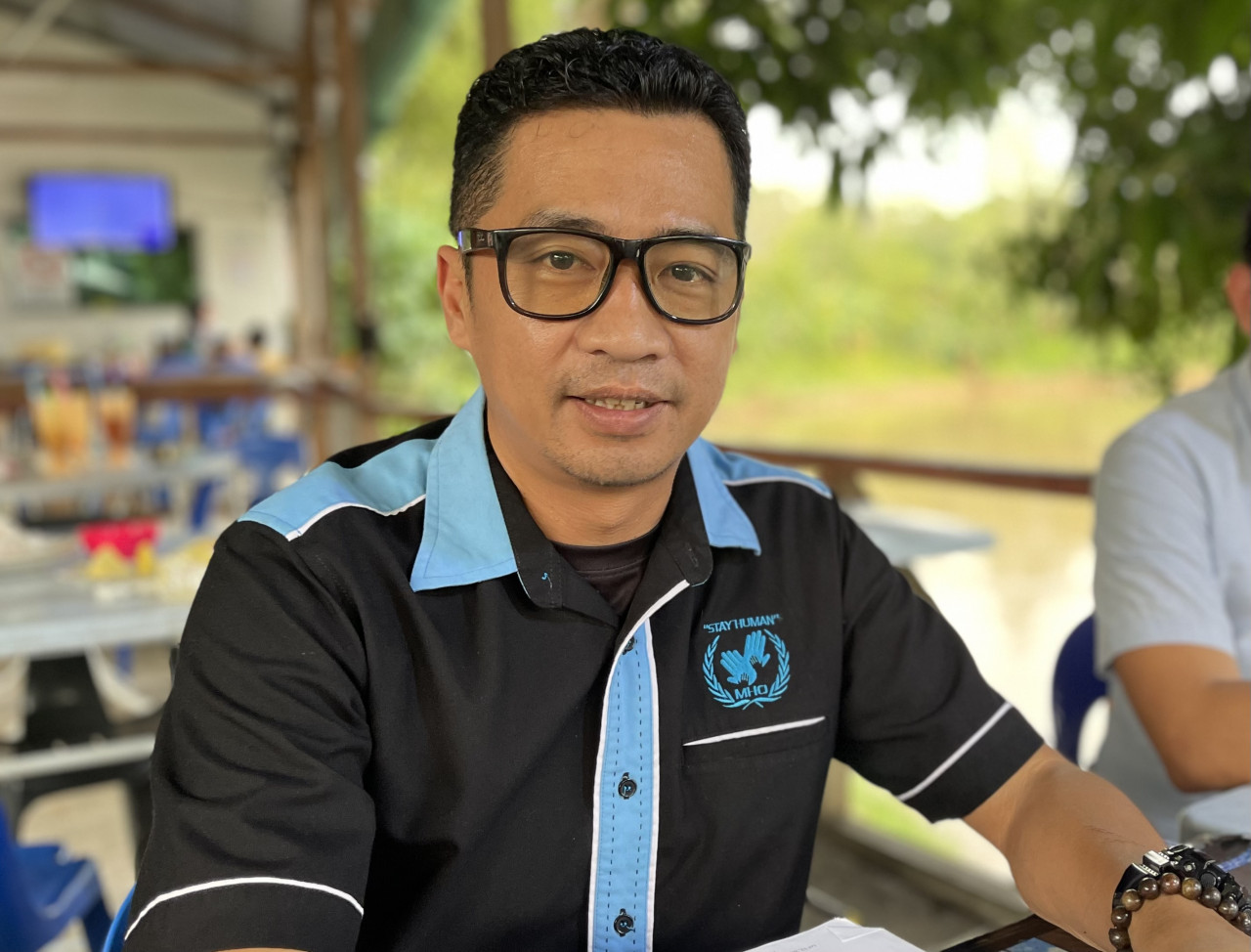
In 2023 alone, he said, MHO handled eight community cases and over 50 individual land disputes and eviction cases.
“These cases typically revolve around the recurring themes of native customary rights land being granted to third parties, usually large companies, and the indigenous communities' lack of knowledge about Sabah's land laws, leaving them unable to defend their rights.
“Forced evictions are also a common issue,” he said.
Department alleges native encroachment
Sabah Land and Survey Department director Datuk Bernard Liew refuted claims of such abuses to deny native customary rights claims and provided statistics to support his stance.
He highlighted a significant increase in land issued with native titles from 24.5% in 2010 to 43.8% by August 1 this year. The total titles issued covered 0.477 million hectares in 2010 and 1.174 million hectares by August.
“The government has put special effort to issue native land titles to genuine native customary rights and native land applications. But there are many cases of natives encroaching into government owned or privately-owned lands in an attempt to claim native customary rights.
“It is quite unfair to say the land offices have not done their due diligence in processing land applications, when we have produced over 10,000 land titles annually, with only two or three cases of disputes due to the native customary rights,” said Liew who was appointed as the Land and Survey director in November 2019.
Liew said land disputes are usually complex, with each case and disputes are unique.
Still, he stressed that all of them can still be resolved if the complaints are channelled properly through the land enquiry and further redress can also be sought from the court of law.
He also noted that the department only lost one court case related to Section 13 of the state land ordinance.
In defence, Liew said landowners have rights to evict anyone encroaching into their lands and if the natives indeed have native customary rights claim, they can go through the legal procedures.
Towards this end, he advised indigenous communities to refrain from engaging with non-governmental organisations, which he claimed often present one-sided accounts of the matter. – The Vibes, November 6, 2023



